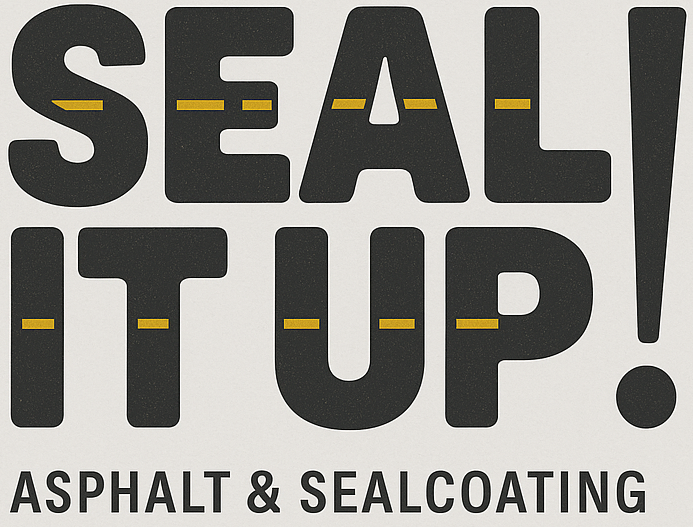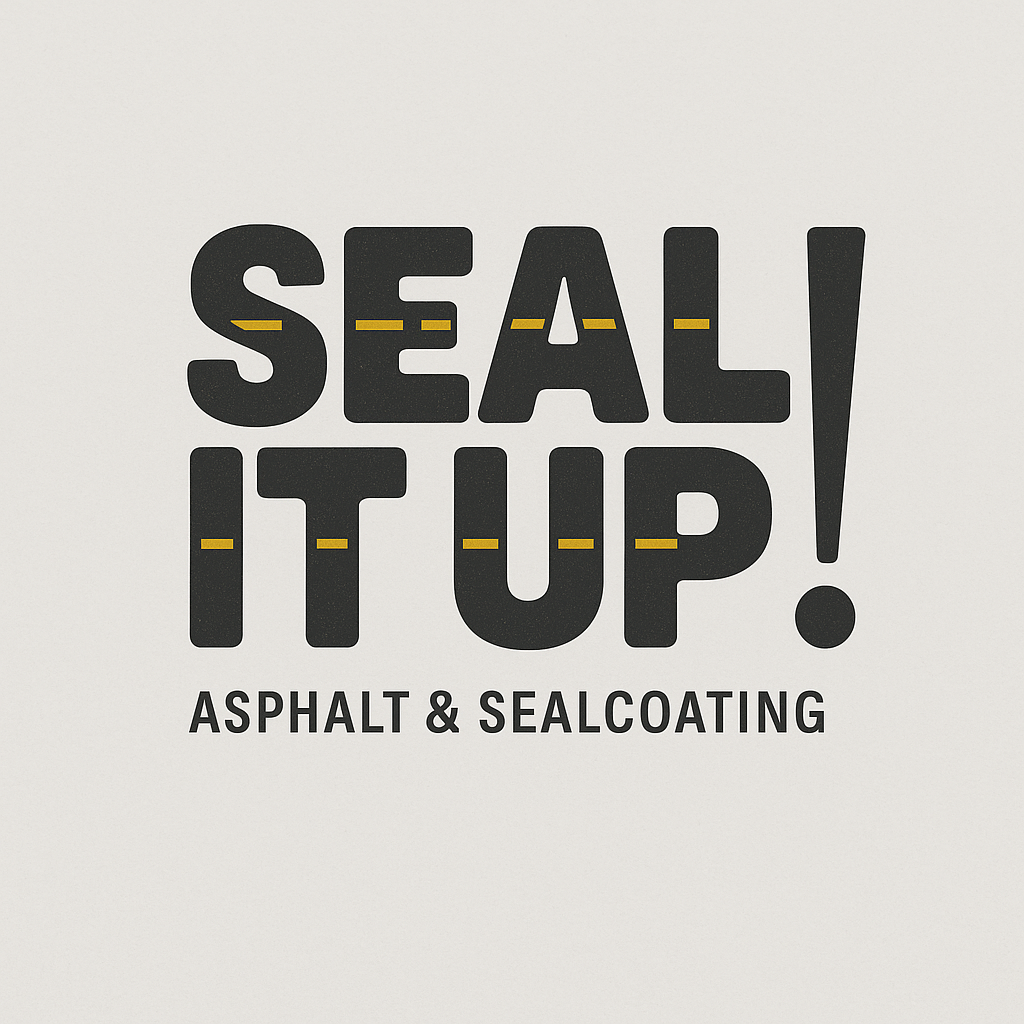Top 5 Myths About Sealcoating (and the Truth You Should Know)

If you own a driveway, private road, or parking lot in Las Vegas, you know the desert sun is no joke. UV rays, heat, oil spills, and traffic can wear down asphalt fast. Sealcoating is one of the most effective ways to protect that pavement, but there are a lot of myths that cause property owners to delay or skip it.
At Seal It Up!, we sealcoat, repair, and protect asphalt across Las Vegas, Henderson, North Las Vegas, Paradise, Boulder City, Spring Valley, and Pahrump. In this guide, we will clear up the top myths about sealcoating so you can make smarter decisions and protect your investment.
Why Sealcoating Matters So Much In Las Vegas
Asphalt is flexible and strong, but it is not indestructible. In Southern Nevada, your pavement is constantly exposed to:
- Intense UV rays that dry out and fade asphalt
- Extreme temperature swings between day and night
- Oil, gas, and fluid drips from vehicles
- Wind blown sand that grinds the surface
Sealcoating adds a protective layer that blocks UV, resists chemicals, and slows down wear. Done on a proper schedule, it can extend the life of your asphalt and delay expensive resurfacing or replacement.
Now, let us look at the myths that get in the way.
Myth 1: Sealcoating Is Just Cosmetic
Many people think sealcoating is like putting makeup on your driveway or parking lot. It looks nice for a while, but does not really do much.
The Truth
Yes, sealcoat makes pavement look fresh and dark again, but the benefits go much deeper.
A quality sealcoat:
- Shields asphalt from sun damage and oxidation
- Helps repel water, oil, and chemicals
- Slows down surface wear from traffic and sand
- Makes future cleaning and line striping easier
In the Las Vegas valley, where UV damage is constant, that protective layer is not cosmetic. It is a key part of pavement preservation.
Myth 2: New Asphalt Does Not Need Sealcoating
Some property owners believe that if asphalt is new, it is tough enough on its own and does not need sealcoating.
The Truth
New asphalt does need time to cure, but after that, it absolutely benefits from sealcoating.
Here is a simple timeline:
- For most projects, the first sealcoat is applied about 6 to 12 months after installation, once the pavement has cured.
- After that, regular sealcoating helps lock in that new asphalt strength and slow down aging.
Skipping sealcoating in the early years is like buying a new vehicle and never changing the oil. It works at first, but problems show up sooner than they should.
Myth 3: Sealcoating Fixes Cracks And Structural Damage
A very common misunderstanding is that sealcoating is a cure all. Many people expect it to fill cracks, smooth potholes, or repair deep damage.
The Truth
Sealcoating is a protective surface treatment, not a structural repair.
Before we sealcoat, we address issues such as:
- Cracks that need cleaning and filling
- Potholes that need patching
- Areas of failed or alligatored asphalt that may need removal and replacement
At Seal It Up!, we offer crack and pothole repair and asphalt paving services, and we combine those repairs with sealcoating for a complete solution. If someone promises that sealcoat alone will fix serious damage, that is a red flag.
Myth 4: Sealcoating Is Only For Big Commercial Lots
Another myth is that sealcoating is only worth it for large shopping centers, HOAs, or big office parks, not for smaller driveways or private lots.
The Truth
The same forces that attack big parking lots are attacking your residential driveway or small business lot.
Sealcoating is an excellent fit for:
- Single family home driveways
- Small business and medical office parking lots
- Multi tenant residential properties
- Private drive lanes and community roads
In busy areas like Henderson, North Las Vegas, and Spring Valley, sealcoating helps small properties stand out with clean, dark pavement and crisp striping. It is often one of the fastest ways to boost curb appeal.
Myth 5: All Sealcoating Is The Same
Because sealcoat looks similar from a distance, it is easy to assume that every product and every contractor delivers the same result.
The Truth
There are major differences in:
- Materials and mix design
- Surface preparation
- Number of coats
- Application methods and weather timing
Cut corners often show up later as early wear, peeling, or tracking. At Seal It Up!, we focus on proper prep, quality materials, and application techniques that suit Las Vegas temperatures and conditions, not just the cheapest solution.
How Often Should You Sealcoat In The Las Vegas Area?
There is no one size fits all answer, but a general rule in Southern Nevada is:
- Every 2 to 4 years for most commercial parking lots
- Every 3 to 5 years for many residential driveways, depending on exposure and traffic
High traffic sites or surfaces that see a lot of turning and scraping may need attention sooner. During an on site visit, we can walk your property and recommend a schedule based on what we see.
Sealcoating As Part Of A Larger Pavement Plan
Sealcoating is one important tool, but it works best as part of a complete pavement preservation plan that may include:
- Crack sealing to stop water from getting under the surface
- Pothole and patch repairs to restore damaged areas
- Chip seal or new asphalt paving for severely worn surfaces
- Line striping and markings for safety and organization
This layered approach helps you get the most life out of your pavement while keeping your property looking professional and well maintained.
Ready To Protect Your Pavement In Las Vegas?
If you own or manage asphalt in Las Vegas, Henderson, North Las Vegas, Paradise, Boulder City, Spring Valley, or Pahrump, sealcoating is not an optional extra. It is one of the smartest ways to control long term costs and protect the look and performance of your pavement.
Now that you know the truth behind the top sealcoating myths, you can plan with confidence.
Reach out to Seal It Up! to schedule a site visit, review the condition of your asphalt, and build a sealcoating and repair plan that fits your property and your budget. We will help you protect your investment, keep your surfaces safe, and maintain curb appeal that reflects well on your home or business.

